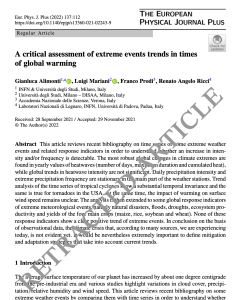A former chemistry professor at the University of Alabama in Huntsville admitted to reusing data in grant applications to the National Institutes of Health while claiming that it came from different experiments, according to the U.S. Office of Research Integrity.
Surangi (Suranji) Jayawardena, who joined the UAH faculty in 2017 following a postdoc at MIT, “engaged in research misconduct by intentionally, knowingly, or recklessly falsifying and/or fabricating data in twelve (12) figure panels” in four grant applications in 2018 and 2019, the ORI said. All of the applications were administratively withdrawn by the agency, one in 2019 and three in 2021.
Jayawardena studied ways to rapidly diagnose tuberculosis, and to deliver drugs to treat various bacteria. She does not appear to have had any papers retracted.
Continue reading Former Alabama chemistry prof faked data in grant applications: Federal watchdog







